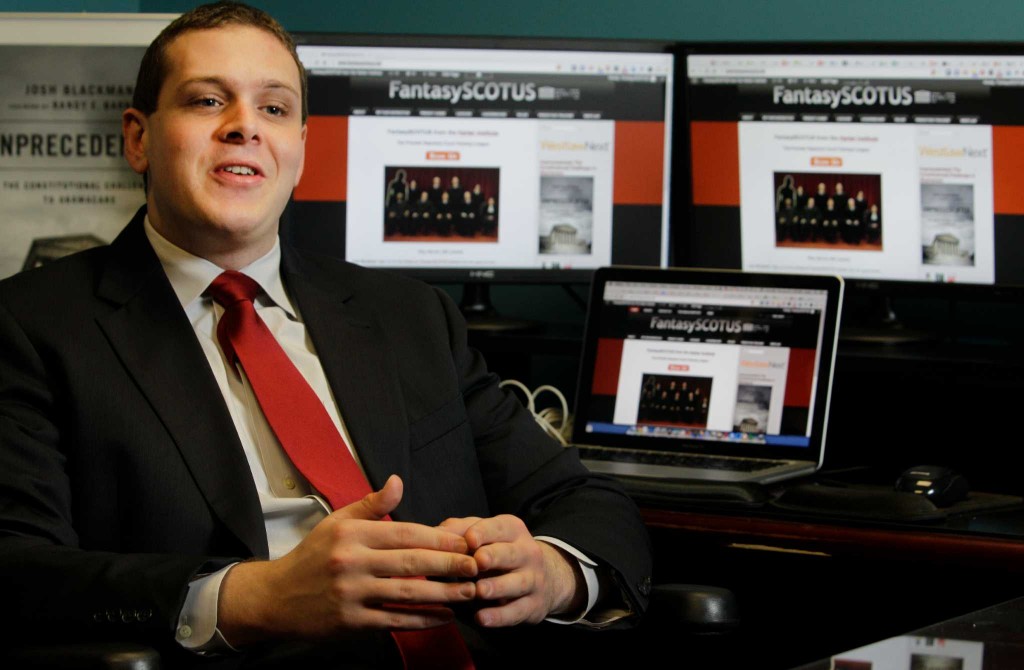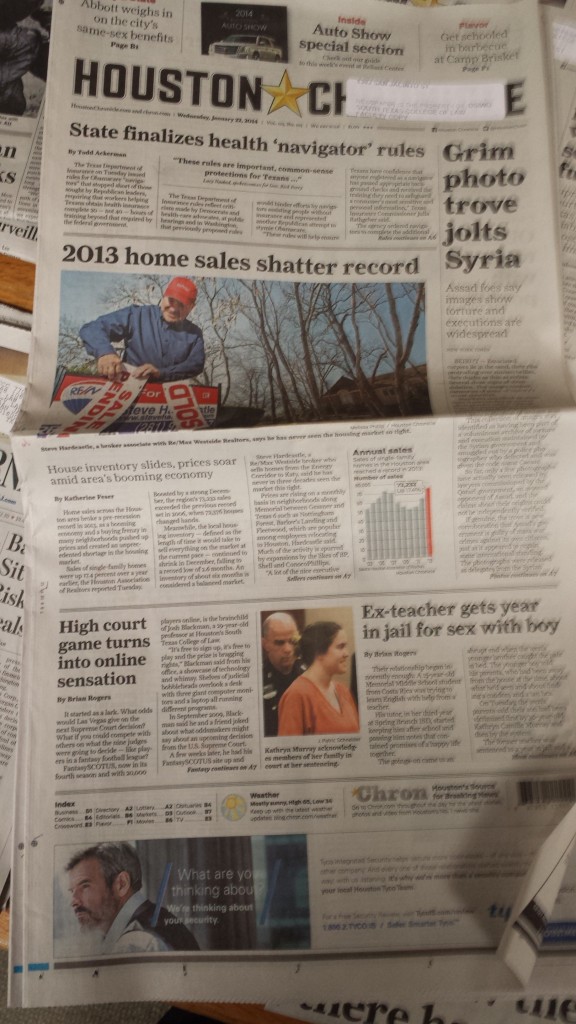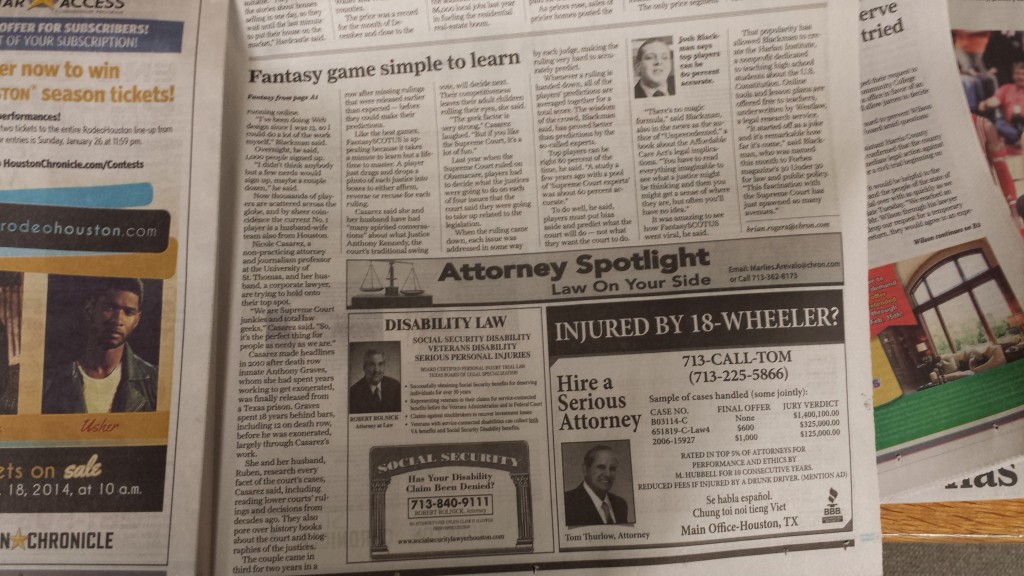Last week Brian Rogers, legal affairs reporter from the Chronicle interviewed me in my office about FantasySCOTUS, Unprecedented, and a whole host of issues.
Here is the intro for the profile:
It started as a lark. What odds would Las Vegas give on the next Supreme Court decision? What if you could compete with others on what the nine judges were going to decide – like players in a fantasy football league?
FantasySCOTUS, now in its fourth season and with 20,000 players online, is the brainchild of Josh Blackman, a 29-year-old professor at Houston’s South Texas College of Law.
“It’s free to sign up, it’s free to play and the prize is bragging rights,” Blackman said from his office, a showcase of technology and whimsy. Shelves of judicial bobbleheads overlook a desk with three giant computer monitors and a laptop all running different programs.
In September 2009, Blackman said he and a friend joked about what oddsmakers might say about an upcoming decision from the U.S. Supreme Court.
A few weeks later, he had his FantasySCOTUS site up and running online.
“I’ve been doing Web design since I was 13, so I could do a lot of the work myself,” Blackman said.
Overnight, he said, 1,000 people signed up.
“I didn’t think anybody but a few nerds would sign up, maybe a couple dozen,” he said.
And here is the conclusion:
To do well, he said, players must put bias aside and predict what the court will do – not what they want the court to do.
“There’s no magic formula,” said Blackman, also in the news as the author of “Unprecedented,” a book about the Affordable Care Act’s legal implications. “You have to read everything imaginable to see what a justice might be thinking and then you might get a sense of where they are, but often you’ll have no idea.”
It was amazing to see how FantasySCOTUS went viral, he said.
That popularity has allowed Blackman to create the Harlan Institute, a nonprofit dedicated to teaching high school students about the U.S. Constitution. Online tools and lesson plans are offered free to teachers, underwritten by Westlaw, a legal research service.
“It started off as a joke and it’s remarkable how far it’s come,” said Blackman, who was named this month to Forbes magazine’s 30 Under 30 for law and public policy. “This fascination with the Supreme Court has just spawned so many avenues.”
Unfortunately, the picture cut off my third monitor (and they insisted on having the same application in each screen).
Update: The profile made Page A1 below the fold, and a follow-up on page A7.


